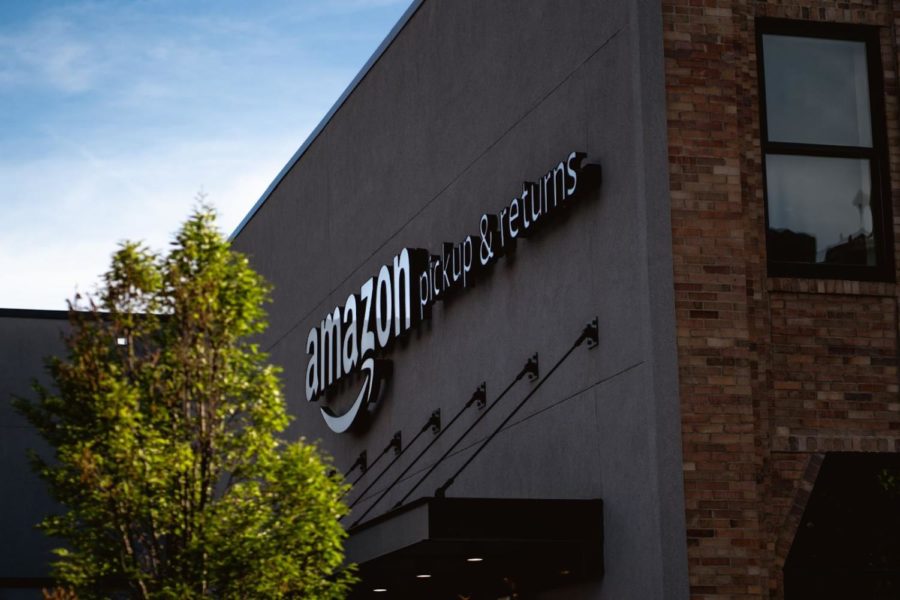The Potential of Amazon’s First U.S. Labor Union
After decades of curtailing unionizing efforts, Amazon has finally met its match in New York City.
Many New Yorkers feel a sense of pride at the first Amazon labor union being established in New York City. “New York City has long been a leader in industrial innovation, both technologically and culturally,” said Kat Rjavinski ’20.
“Do you wish to be represented for purposes of collective bargaining by Amazon Labor Union?” read the ballot placed in front of nearly 5,000 Amazon workers on April 2022 at the JFK8 Amazon warehouse in Staten Island. By a vote of 2,654 to 2,131, the workers formed the first Amazon Labor Union in the U.S.A.
Since 1794, unions have served as a unique channel between workers and employers in which deliberations on working conditions, wages, and benefits flow. In unionized workspaces, workers have the mechanisms to hold their employers accountable in a legal setting. Without unions, employers set the standards and the workers must comply, with little to no room for negotiation.
Without a union presence, Amazon has become notorious for the poor treatment of its workers. The fast pace that Amazon operates at to meet the expanding demands of consumers influences its corporate rules, leading to restricted time for breaks and extended work hours – without compensation. At JFK8, the only fulfillment center in New York City, workers have the extra burden of going to great lengths to ship out all of the city’s orders in accordance with Amazon’s fast shipping policies.
With these mounting abuses, Amazon workers nationwide have sought to unionize and protest against overwhelming and unbearable conditions. For over a decade, there have been several votes similar to the one in April on Staten Island. Management at Amazon has thwarted these votes by making false promises of better conditions for workers and retaliating against organizers by firing or demoting them.
The success of the JFK8 Union marked a riveting turn of events, reassuring the working class that the power of workers cannot ultimately be diminished by the elite.
“Like most people, I was pretty surprised because the odds were against them. Amazon spent millions on anti-union consultants and did everything they could to secure a victory, and they still lost. Most importantly, they lost to a unionizing effort that wasn’t backed by a traditional, resourced union,” said Joel Suarez, an assistant professor at CUNY School of Labor and Urban Studies.
So how did the union succeed in forming? The answer can be found in Christian Smalls, the President of the Amazon Labor Union. After being fired for leading a walkout last year to protest poor conditions during the peak of the COVID-19 pandemic, Smalls continued to fight on behalf of Amazon employees.
Some organizers are experiencing the full wrath of Amazon’s fury at their unionizing efforts. Several managers at JFK8 were recently fired, with Amazon officially stating that they were going through ‘organizational changes’ — an obvious coverup for their retaliation.
Even with the formation of the union, change is still at an early stage. Next comes the most difficult and taxing aspect of being in a union — getting the public to also take a stance. The union’s chances of success are particularly slim because very few Americans would even consider boycotting Amazon, due to its ubiquity, ease of use, speed in shipping, and abundant supply of goods.
“It is the ease that makes Amazon so attractive. It is just easy and thus attractive to the tens of millions of stressed Americans who no longer identify with the small or even larger-sized businesses in their own communities. No change is likely, for a long while,” said Lee Adler, a professor of Labor and Unions at Cornell University.
However, others are still hopeful that a boycott won’t be necessary for the union to ultimately change labor history and national policies.
“We have known for decades that the U.S. has changed the rules in a way that gives large corporations far too much power, and this has created a way for them to treat the workplace as a dictatorship for many workers. These corporations have made a few people extremely wealthy off the backs of the worker’s hard labor. We have not had much change in the laws through the policy arena, so hopefully, the unionization route will create some real alternatives and allow people to finally stand up to the corporations,” said Stephanie Luce, a professor at CUNY School of Labor and Urban Studies.
The success of the JFK8 Union marked a riveting turn of events, reassuring the working class that the power of workers cannot ultimately be diminished by the elite.
Aissata Barry is a Copy Chief for ‘The Science Survey.’ She believes that journalism is appealing because it creates a fascinating connection between...











